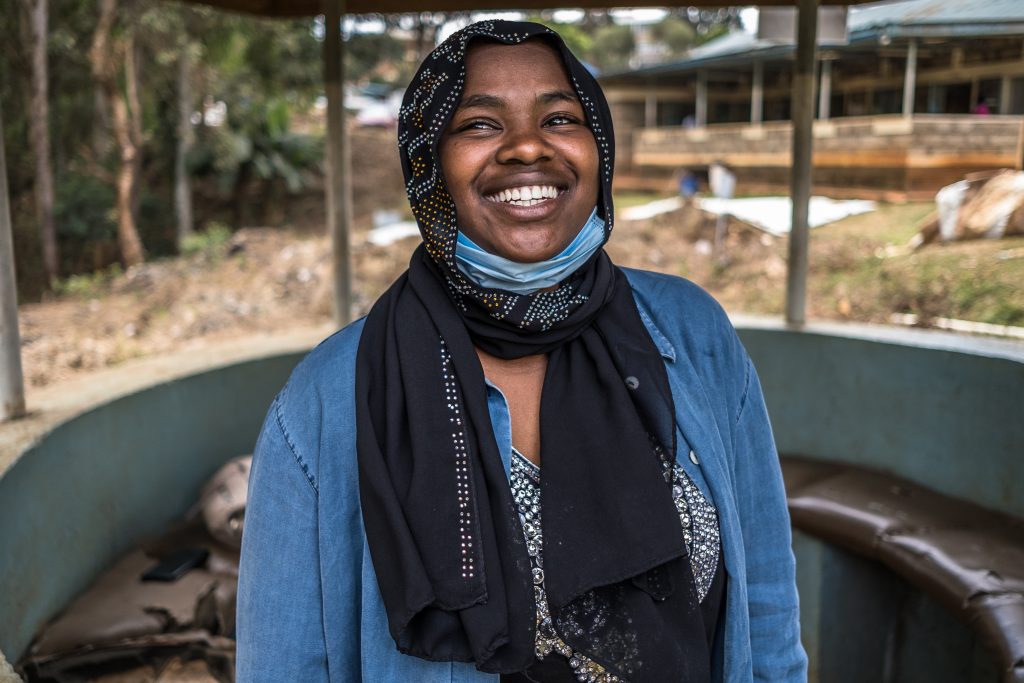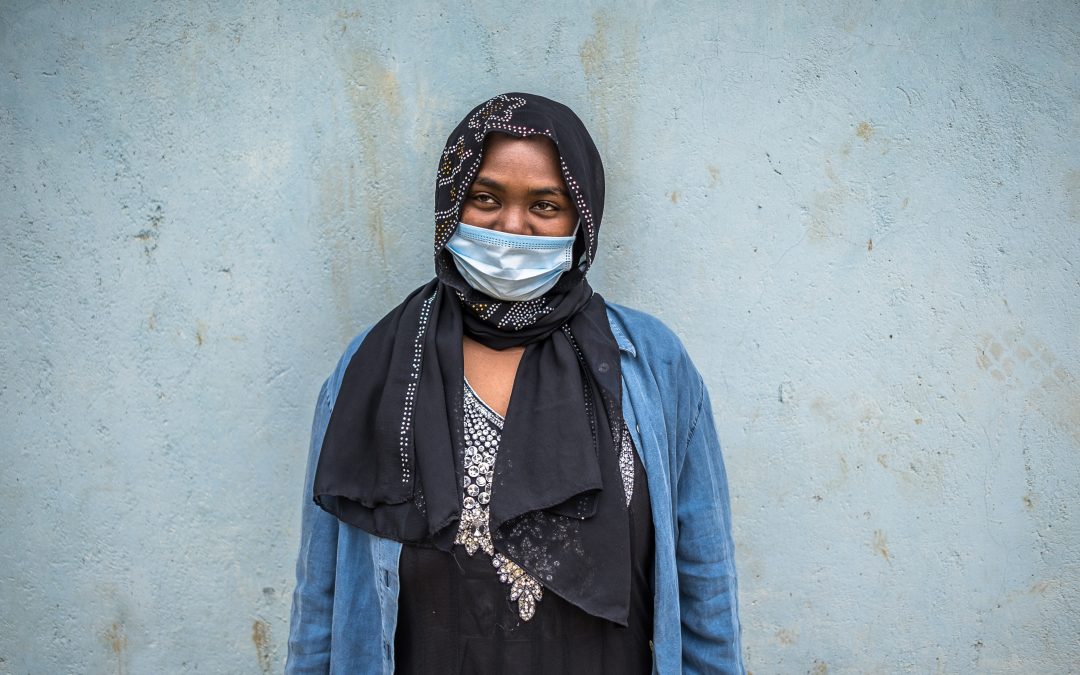What has changed since the start of the pandemic?
We used to have sessions in schools, community dialogues and youth forums. Now, because of COVID-19, we cannot have a gathering of many people, and that has reduced the flow of information. The youths can still access information online; we use various platforms like WhatsApp, Facebook and Twitter. The pandemic has affected many areas in SRHR, but it has also given us a chance to review the way we do things to come up with new strategies and cope with new situations that may arise.
How do you see the future?
The future looks promising. Even before COVID-19, youths made many efforts in the area of SRHR in sharing information, dispensing services and changing the community’s views on reproductive health.
What would you like to see to ensure your rights are being protected?
To ensure that my rights are respected and I can express and access them, we need the platforms to access information and services on our health rights.
I am happy to be a youth champion because I can make sure people get the right information and access to services, and give the youths an opportunity to air their views. When a young person approaches me with an issue regarding SRHR, I am honored to be able to share information with them and direct them to get the help they need. Once, I helped a person that had needs concerning access to family planning services. This persion used to think that it’s wrong, people get cursed, people won’t be able to have children, so these issues affected them, but I gave them the correct information and directed them to access the services.

Latifa Karambu, 21, is an advocacy officer at the Youth and Women Advocacy Network located in Meru County, Kenya.
What is the impact of COVID-19 on access to family planning services?
The number of teenage pregnancies is high, and the solution takes time because the youths are not accessing the services, and they also have much time on their hands which is contributing to the problem. Young people know about family planning, but it’s still a challenge to change the trend. When you try to convince them to access services, there is always a challenge in spreading that information. You find that, due to the age limit, some parents and teachers do not allow a specific age bracket to access these services during this pandemic. You find that teenagers 15 years old and up have a high rate of teenage pregnancy and it’s hard for them to get the information they need.
Before COVID, we did an outreach in an area and the parents said that their children could not access this kind of information on SRHR because they are very young. DSW has supported the organisation I work for, Youth and Women Advocacy Network, in capacity building; they give us information and help us in funding and carrying out activities.
What advice would you give to women and girls?
If I could advise the women and girls in my community, I would tell them that the future is in their hands and they can make the decisions and do what is right and best for them.
Latifa Karambu, 21, is an advocacy officer at the organization Youth and Women Advocacy Network (YWAN) located in Meru County, Kenya. Photos and interview conducted by Brian Otieno for DSW.

